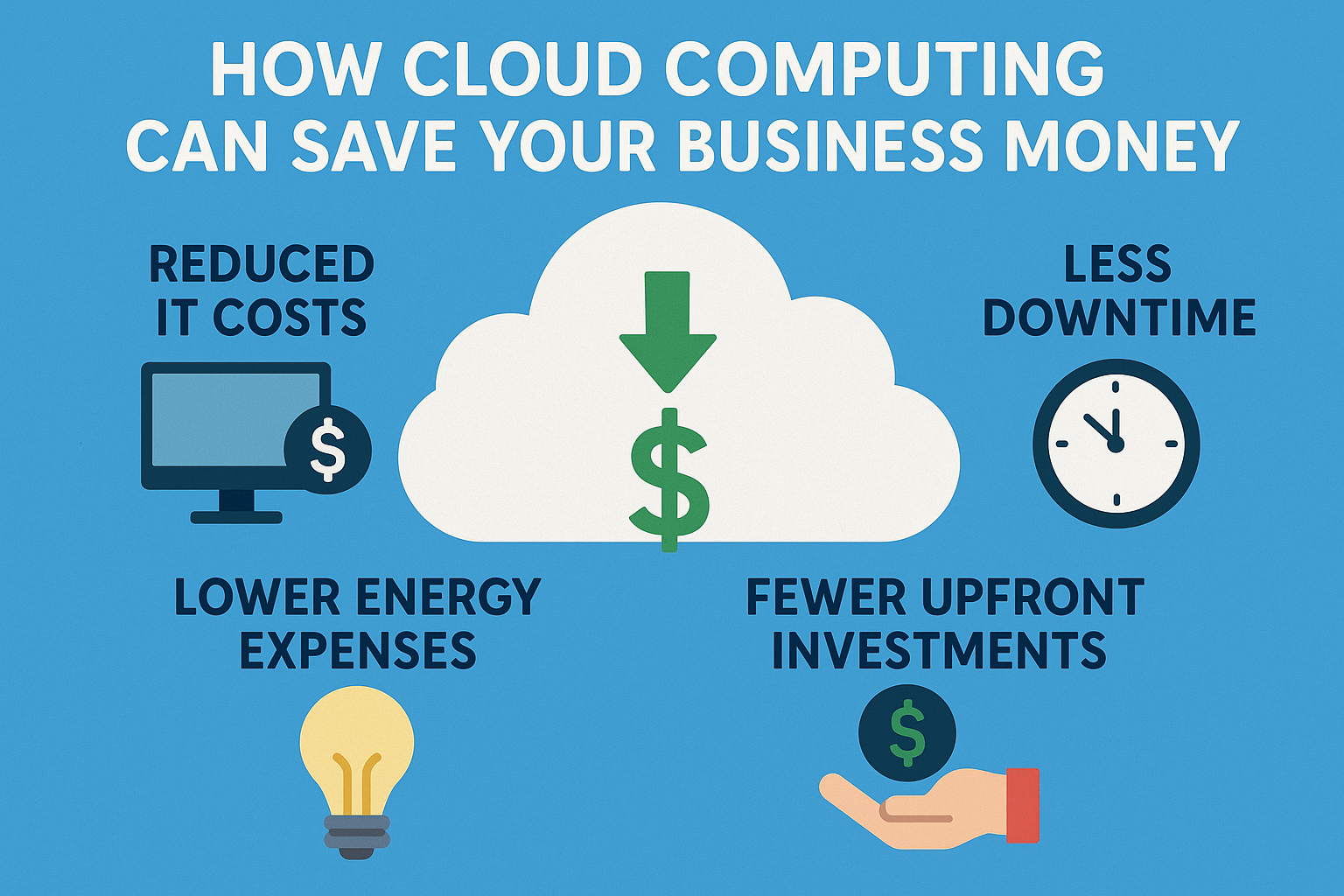In an increasingly fast-paced digital business environment, businesses are continually challenged to cut costs while driving efficiencies and competing, and one of the disruptive technologies assisting companies to meet these challenges is cloud computing. The cloud not only offers flexibility and scalability, but has become a powerful leverage point for reducing costs across all areas of business.
In this article we will focus on how cloud computing can save your business money, what benefits are realized, and why moving to the cloud may be one of the smartest financial decisions your business ever makes.

What Is Cloud Computing?
Cloud computing is the delivery of computing services including servers, storage, databases, networking, software, and analytics over the Internet (“the cloud”). Businesses can rent these services from cloud providers “on-demand” and pay only for what they use instead of having to build expensive physical infrastructure themselves.
Key Features of Cloud Computing
Scalability – instantly scale resources up or down
Cost, scale only pay for what you use
Flexibility – access applications and data anywhere
Security – protection from sophisticated cloud protections.
How Cloud Computing Lowers Business Costs
- No large initial infrastructure costs
Historically, businesses incurred large IT expenditures for servers, storage, networking and other physical IT equipment. With cloud computing, there is no

- Decrease in IT Staffing Costs
On-premise infrastructure management can take an entire IT staff to manage the initial setup, maintenance, and issue remediation. Cloud services place some of that responsibility on the service provider. This means you can operate your business smoothly with far fewer full time IT personnel, which allows you to save on salaries, training, and hiring expenses.
- Pay-as-you-go model
Cloud-computing typically follows a pay-as-you-go model which enables businesses to only pay for the resources they consume. This means you don’t waste money paying for capacity you may not use and that’s so common with traditional IT environments.
For example:
A startup can minimal resources initially and ramp up capacity when they grow.
A seasonal business can ramp resources during peak seasons and cut back after, so they don’t have wasted expenses.
- Decreases Energy Use and Utility Bills
Running data centers uses a lot of electricity to power servers and power equipment to chill servers. Clouding enables you to use the provider’s energy efficient data center which can help significantly lower your company’s bill for electricity and cooling.
- Reduction in Downtime Cost
Downtime can be very costly to a business because you immediately lose revenue and don’t know the cost to your reputation. Cloud service providers typically guarantee uptime that is generally more than (99.9%). The cloud service provider has highly redundant systems and disaster recovery plans to help your business stay up and running. Cloud computing can help eliminate downtime costs and data loss issues.
Operational Efficiency
- Improved Cash Flow
Moving to the cloud means transitioning IT expenses from capital expenditures (CAPEX) to operating expenses (OPEX). A significant cash advantage for a business. No longer will they have to incur steep upfront costs.
- Reduced Data Loss
It is difficult to attribute a single cost to losing data. Cloud providers offer backup and disaster recovery features to protect your data from cyberattacks, system crashes, and even acts of god. Rest easy knowing your data is protected.
- Competitive and Long-term ROI
Cost savings on infrastructure, people and energy means you can reinvest any gained funds into innovation, product development, and customer service. This will have a positive effect on long-term return on investment (ROI).
Cloud Savings Examples
Netflix – Migrated its entire service to AWS to reduce infrastructure costs, and allow for virtually unlimited scaling.
Airbnb – Uses cloud platforms to manage fluctuations in demand. Hundreds of millions on IT costs annually.
Startups – Now, many startups will assess cloud services to launch with the least amount of up-front expense.
Upsides, but Risks Exist
Cloud is a less expensive option, however businesses should consider some risk factors:
Data Security – While providers may have sophisticated security protocols, you must establish sound policies;
Hidden Costs – You’re footing the bill automatically, and if you’re not keeping track of costs, they can rise fast;
Vendor Lock-in – If your business becomes overly reliant on one provider
By properly managing
